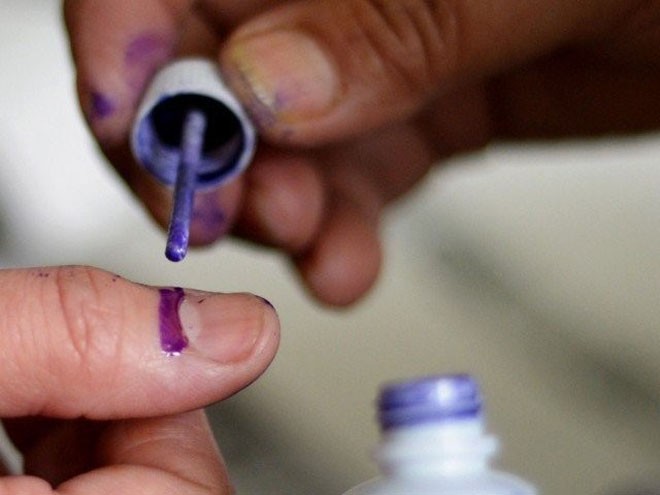
Next week’s local government elections in Northern Sindh are expected to surprise few

Despite forging many alliances against the Pakistan People’s Party (PPP) on district level, the rival groups are unlikely to give the ruling party a tough fight in the local government polls in Northern Sindh next week.
In the first phase, the polls will be conducted in the northern parts of Sindh, in Khairpur, Sukkur, Ghotki, Larkana, Shikarpur, Qambar Shahdadkot, Jacobabad and Kashmore, on October 31. In the second phase elections will be held in Lower Sindh on Nov 19 and in the third phase in Karachi on Dec 3.
All key rival political parties -- including the Pakistan Muslim League-Nawaz (PML-N), the Pakistan Muslim League-Functional (PML-F), the Jamaat-e-Islami, Workers Faction of the PPP-led by Safdar Abbasi and Naheed Khan, the Pakistan Tehreek-e-Insaf (PTI), the Jamiat-e-Ulema Islam-Fazl (JUI-F) and local influential political figures -- have formed district-level alliances to give the ruling PPP a tough time in the upcoming local government elections in Sindh. But in Northern Sindh, analysts say, most of the PPP-backed candidates stand unopposed, which shows the PPP’s rivals are actually in a weak position.
More than 10,000 candidates are expected to contest the LG elections in Northern Sindh’s eight districts and 707 among them have been elected unopposed, according to an official in Sindh’s election commission. Local journalists say most of these candidates are from the PPP, the rest from the PML-F and JUI-F.
According to reports, the PPP has lured local political leaders, who are also chieftains of their clans, to the party. This has given the PPP an edge over others contesting the LG polls. Murad Pandrani, a political analyst based in Qambar Shahdadkot, says that Northern Sindh is very different from the rest of the province, as powerful tribal chieftains rule the region. "In Northern Sindh, the local polls are not between political parties but tribal chieftains. And this makes the ruling PPP’s position stable as most of the powerful tribal chieftains are with the ruling party".
Interestingly, local journalists report that most of the PPP candidates are not using the picture of the party’s co-chairperson Asif Ali Zardari on their election banners and posters and are instead emphasising on their clan association.
Also, to carry forward their political legacy, the political leaders have fielded their children to contest the polls. Nida Khuro, daughter of Sindh’s information minister Nisar Khuro, is one among the candidates elected unopposed from Larkana. She is aspiring to grab the city mayor’s position.
Other key political parties, especially the PML-N and PTI, have faced problems in finding candidates from eight districts. In the 2013 general polls, to oppose the PPP, the PML-N formed a 10-party alliance, consisting of religious and Sindhi nationalist parties. But its impact was not significant as the PPP swept the elections in Sindh. Although the PML-N won the elections and formed the government in the centre, it largely ignored Sindh and its allies in Sindh. Nawaz Sharif did not allot key ministries to Sindhis in the federal cabinet. "It shows that PML-N is a Punjab-based party and the PPP exploits this notion successfully in the Sindh province," says Sindh-based analyst Ishak Soomro.
PTI chief Imran Khan also visited the northern districts of Sindh on September 2 and 3 but he was unable to achieve the desired results. Journalists who covered Khan’s trip say there was some hope for the PTI in Northern Sindh but, as the party lacks a proper organisational setup in the province, it was unable to make his visit successful. Unlike Punjab, Khyber Pakhtunkhwa and Karachi, we did not see huge public participation and fervour in Khan’s rallies in Northern Sindh.
Even a PTI’s central leader, who visited Northern Sindh recently, says that there is no discipline in Northern Sindh and all decisions about Sindh local government polls are ad hoc rather than based on plan, vision and strategy. The entire PTI team from Matiari district defected to the PPP, and one senior party member was suspended because he wanted to get a ticket for his brother. In Ghotki, former PTI Sindh president announced to support a non-PTI candidate.
"Whether it’s Khan or Sharif, the Sindhi people don’t accept outsiders -- and the PPP exploits this sentiment to win elections in the province since 1970s." says Ishak Soomro.
Three key Sindhi nationalist parties -- Syed Jalal Mehmood Shah-led Sindh United Party, Ayaz Latif Palijo-led Qaumi Awami Tehreek and Dr. Qadir Magsi-led Sindh Tarraqi Pasand Party, -- have fielded candidates in some constituencies. But, as Pandrani points out, "In 2013 general polls, Sindh nationalist parties of the ten-party alliance did not see any success. It seems the results would be similar in the local government polls on Oct 31".
He says one of the main reasons for the loss of Sindhi nationalist parties was that they fielded candidates belonging to middle class, not powerful tribal chieftains.
However, the JUI-F, in alliances with the PPP and anti-PPP forces, had managed to win several seats unopposed from the eight districts, especially Jacobabab and Shikarpur. But the JUI-F is gaining strength in Northern Sindh because its leadership is a mix of religious ideology and Sindhi nationalism, and is far more responsive to local political needs.